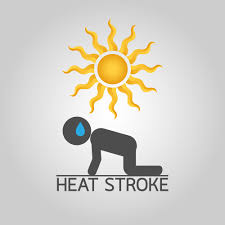
INDIANA – As temperatures and humidity soar outside, and temperatures could hit nearly 100 degrees on Tuesday, what’s happening inside the body can become a life-or-death battle decided by just a few degrees.
The critical danger point outdoors for illness and death from relentless heat is several degrees lower than experts once thought.
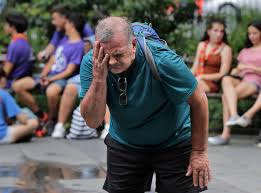
Heat is an environmental and occupational health hazard. Heat stress is the leading cause of weather-related deaths and can exacerbate underlying illnesses, including cardiovascular disease, diabetes, mental health, and asthma, and can increase the risk of accidents and transmission of some infectious diseases.
The body’s resting core temperature is about 98.6 degrees Fahrenheit (37 degrees Celsius). That’s only 7 degrees (4 Celsius) away from catastrophe in the form of heatstroke, a critical increase in body temperature that causes organs to fail. Core body temperatures greater than 104 degrees is often seen during heat episodes. Doctors say anything higher can lead to a higher risk of death.
According to experts, humid heat kills more people than dry heat. Humidity impacts the ability of sweat to evaporate.
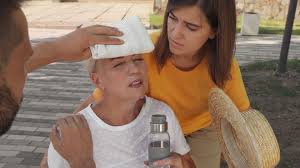
According to health experts, when the inner body temperature gets too hot, the body redirects blood flow toward the skin to cool down. This diverts blood and oxygen away from the stomach and intestines and can allow toxins normally confined to the gut area to leak into circulation, setting off clotting around the body, organ failure, and ultimately death.
Extreme heat can negatively impact the body in many ways, including:
- Dehydration occurs when it’s hot, and you can sweat away too much fluid and essential minerals like sodium and potassium. This can lead to thirst, dry mouth and tongue, and decreased urination. Dehydration can also cause dizziness, lightheadedness, and confusion.
- When the body can’t regulate its internal temperature, heat-related illnesses occur. These can lead to illnesses like heat cramps, heat exhaustion, heatstroke, and hyperthermia. Symptoms of heat exhaustion include heavy sweating, pale skin, muscle cramps, weakness, dizziness, headache, nausea, vomiting, fainting, and rapid pulse.
- Heart and kidney stress: The body’s efforts to cool itself can cause stress in the heart and kidneys. For example, blood vessels dilate to cool down, which can lower blood pressure. The heart also pumps harder and faster to maintain consciousness, which can lead to heart attacks in people with cardiovascular disease.
- Hot air can worsen respiratory conditions like asthma and chronic obstructive pulmonary disease, making breathing difficult.
- Heat can disrupt sleep, making it harder to focus and learn.
But the bigger killer in heat is the strain on the heart, especially for people with cardiovascular disease.
Blood rushes to the skin to help shed core heat, causing blood pressure to drop. The heart responds by trying to pump more blood to keep you from passing out. The heart works more than usual. For someone with a heart condition, this can be deadly.
Many people don’t realize the danger of dehydration. As they sweat, they lose liquids to a point that can severely stress the kidneys.
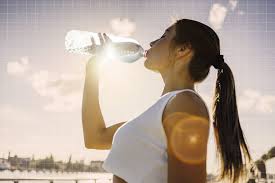
According to health experts, dehydration can progress into shock, causing organs to shut down from lack of blood, oxygen, and nutrients, leading to seizures and death. It is especially dangerous for those with existing medical conditions. Dehydration also reduces blood flow and magnifies cardiac problems.
Several doctors said that heat also affects the brain, causing confusion or trouble thinking.
Doctors say one of the first symptoms of trouble is if you get confused. It also becomes a bigger problem as people age.
Heatstroke is an emergency; medical workers try to cool a victim down within 30 minutes. The best way is cold water immersion.
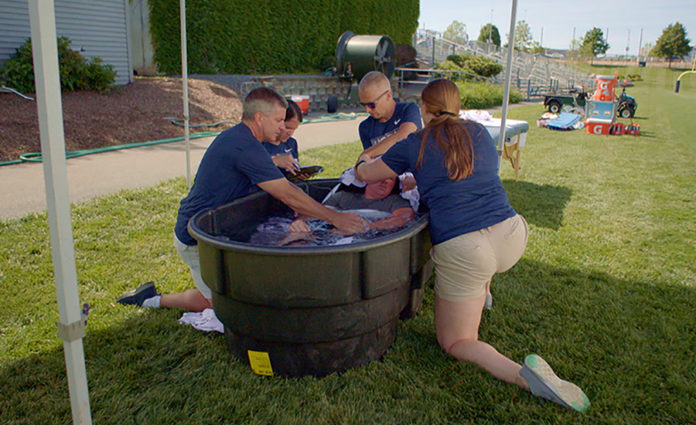
Emergency rooms intravenously pump patients with cool fluids, spray them with misters, put ice packs in armpits and groin, and place them on a chilling mat with cold water inside.
Sometimes it doesn’t work. That is why health experts call heat the silent killer.







.png)











